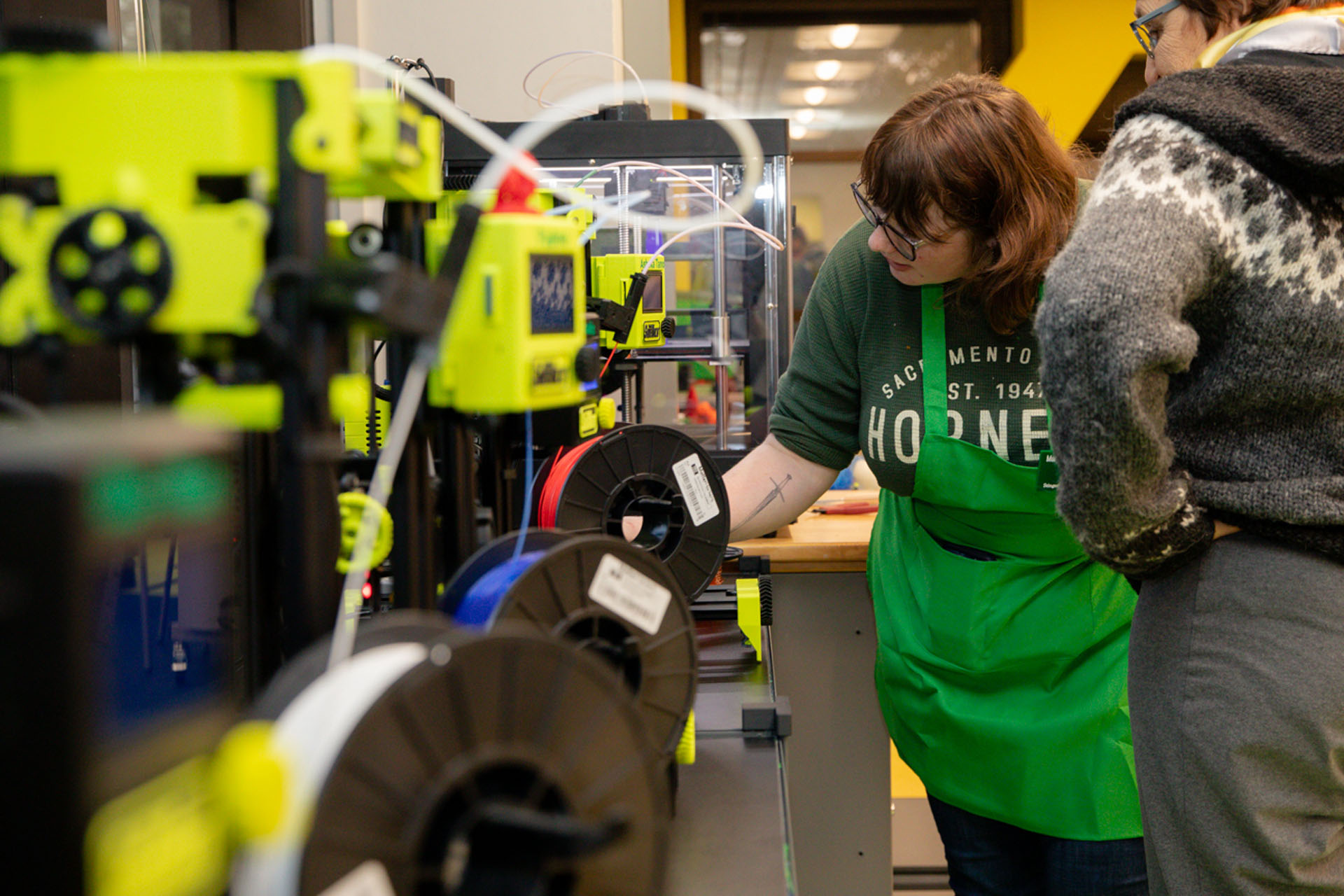Story Content
New Disability Cultural Center, first in the CSU, helps students find community and achieve goals

June 20, 2023
Sacramento State has opened a cultural center to serve disabled students, joining a handful of universities around the country with a dedicated space for such scholars.
The Disability Cultural Center offers students with disabilities a “safe place” to study, get counseling, attend workshops and social events, and obtain other resources to achieve their academic and personal goals, said Mary Lee Vance, director of the University’s Disability Access Center.
“More than anything, it needs to be a place where students can come in and sit down with others who are allies,” said Vance. “It’s a place where they won’t feel lonely or awkward.”
Sac State has long offered academic accommodations to students with mobility, visual, hearing, psychological, and mental disabilities. The cultural center goes further, offering them a place to relax, learn about disability history and rights, and become part of a supportive community, said Vance.
“It’s a unique space that anyone can use. There’s nothing like this anywhere on campus.”
-- Mary Lee Vance, Disability Access Center director
Approximately 10 other disability cultural centers exist on college campuses in the United States, according to the Association on Higher Education and Disability. Sac State’s is the first in the CSU system.
The center, located in the Academic Information and Resource Center, currently is in the midst of a “soft opening,” and will operate at full capacity in the fall.
The opening fulfills a dream Vance has had since she came to Sac State in 2018.
“It’s always been my goal to establish a cultural center,” said Vance, who uses a scooter to get around campus and also is hearing impaired. But a lack of space and funding delayed the project.
“During the COVID pandemic, we decided that perhaps we weren’t using our space the best way that we could or should,” she said. “So, we quietly removed debris and clutter, got rid of outdated technology, collected some furniture,” and decorated the space with comfortable chairs and sofas, soothing tones, and softer lighting.
Small grants from Associated Students Inc. and University Enterprises Inc. helped pay for some of the center’s furniture and equipment, and will fund a graduate student to coordinate activities and events.
Much like the Dreamer Resource Center, the MLK Center, the Pride Center, and other programs on campus, the Disability Cultural Center reflects Sac State’s commitment to diversity and inclusion.

About 1,200 students receive services from the Disability Access Center, but many more could take advantage of the cultural center, she said.
Located in Lassen Hall, the Disability Access Center will continue to manage the academic and accommodation needs of students. Its testing center, which serves disabled and non-disabled students, operates on the lower level of the University Library.
The cultural center adds a third element, helping students connect with one another and build identity and a sense of belonging. Those experiences may help boost confidence, and assist them in their journeys to stay in college and earn their degrees, Vance said.
In addition to being a gathering place where students can socialize, the center is equipped with private study spaces with computers equipped with technology that translates written materials to voice, and vice versa. Visitors can also spend time in the “sensory room,” which features low light, a plush chair, and tactile items like clay and liquid motion bubblers that students can use to unwind and relax.
Representatives of the state Department of Rehabilitation, which provides vocational and other services to Californians with disabilities, will regularly conduct counseling sessions at the center. It also will be a resource to additional groups of students, including veterans and members of Project Rebound, which serves formerly incarcerated scholars.
Undergraduate student Shannon Brown said she lives with disabling conditions including anxiety and PTSD, and is raising a son who has autism. She works in Vance’s office, and played a key role in designing a center that she believes will serve students of all abilities.
A wide range of government and private programs are available to children who are disabled, Brown noted. “But once these kids become adults, services disappear,” she said.
The Disability Cultural Center will help fill that void. It is also a major step forward for Sac State and its students, said Vance.
“It’s a unique space that anyone can use,” she said. “There’s nothing like this anywhere on campus.”
Cultural centers strive to help students develop pride in their identity, and share information about disabilities with the rest of the campus community, Vance said.
“We reject the notion that disability is a negative,” she said. “What’s negative is the obstacles that we face. We need to knock down those obstacles.”
Media Resources
Faculty/Staff Resources
Looking for a Faculty Expert?
Contact University Communications
(916) 217-8366
communications@csus.edu


